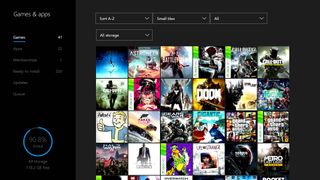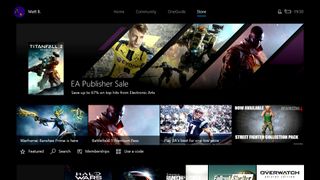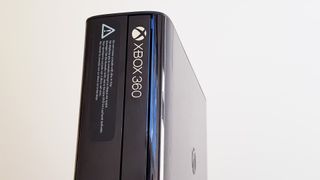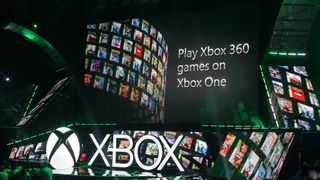Are your digital Xbox One games really here to stay?
With online game distribution still in its infancy, what does the future hold for your digital Xbox One titles?

Since its debut back in 2013, the Xbox One has always been a console built with online services in mind. While reliance on internet connectivity is common for any modern console, the original vision for the Xbox One sparked an unprecedented level of outrage at the time, with ambitious, but equally controversial policies.
Despite Microsoft eventually reversing these policies prior to launch, the fundamentals of their philosophies can be seen in the Xbox One today. Physical used games may still be in circulation and internet connectivity isn't required, but Microsoft continues to place a heavy emphasis on its digital goods and services. Digital games now release on launch day, pricing is steadily becoming more competitive and even features such as "Play Anywhere" draw players towards online purchases.
But even without the constraints associated with the initial Xbox One vision, digital rights management (DRM) and the shortcomings of digital content still hang over the console. As more gamers flock toward online distribution, some disconcerting questions still lie ahead in the years to come.
Do you really own your digital Xbox titles?

Following the recent passing of the Ultimate Game Sale, many gamers took to the Xbox Store to secure digital titles on the cheap. Personally, I was stockpiling games I missed earlier in the year, while our Xbox Senior Editor, Jez Corden, was buying up backward compatible Xbox 360 games to complete his digital collection. At this point, both of us have migrated to almost entirely digital game libraries, with a few hundred titles tied to our Microsoft accounts.
My mindset has shifted to the volatile nature of a digital ecosystem, or rather uncertainty of what's to come.
I, like many, would hate to think how much has been invested in my Xbox library and until this point, I've yet to question the stability of my game collection. Before transitioning solely to digital, I loved the concept of having a convenient collection on the go. But recently, my mindset has shifted over the volatile nature of a digital ecosystem, or rather the uncertainty of what's to come.

In Microsoft's words, "all digital goods are licensed, not sold." By purchasing digital games you're gaining access to a long-term license to play your games, rather than truly owning them. Reviewing Microsoft's content usage rules, here's what the firm has to say in regard to digital goods across its ecosystem.
Digital Goods are licensed solely for your personal, non-commercial use (which excludes use for promotional purposes), at a level customary for such use. Microsoft may stop distributing any Digital Good, or add to or reduce the capabilities for any Digital Good, at any time. You may lose access to or capabilities of Digital Goods, or have the nature of your access changed
Like any digital storefront, your ownership can theoretically be revoked at any point in time, leaving a huge amount of uncertainty for the future. Sure, Microsoft's isn't going to just remove games from your library on a whim (we're, like, 99.99% sure that won't happen), but there's a potential to lose valid purchases in the years to come.
Get the Windows Central Newsletter
All the latest news, reviews, and guides for Windows and Xbox diehards.

Regardless of the likelihood, there are plausible ways access to your games catalog could be revoked later down the line. For many, the burden of an Xbox Live ban is enough to put your purchases in jeopardy, by preventing to account from accessing Microsoft's download servers. As a part of the service usage rules, you're giving the right to forfeit your library in these scenarios, regardless of how harsh they may seem.
On a per-product basis, some content has also been known to be removed from the Xbox Store entirely – whether for legal complications, or the discretion of the publisher. Although it's uncommon for games to be removed entirely, the legalities of hosting digital content make for a more unpredictable solution than tangible goods.
Albeit unlikely, drastic events may also have an impact on your ability to access purchases. Whether a large-scale hack targeted at Microsoft, closure of the Xbox Store or even Microsoft shutting down entirely – these are all legitimate concerns in the years (or even decades) to come.
The end of an era is coming

With the rise of digital licensing and subscription-based services, the way in which we consume content is changing, for better or worse. Digital video game distribution has only been widely adopted in the past decade, and resultantly, the standards for such content are still being established. The promises of a digital ecosystem are enticing, but due to the infancy of such distribution, we're yet to feel the impact of its biggest flaws.
The promises of a digital ecosystem are enticing, but we're yet to feel the impact of its biggest flaws.
Over the past year, production of last generation's biggest consoles, the Xbox 360 and PlayStation 3, ended. With both devices now having successors for reasonable price points, there was little incentive to keep the consoles on the market. While phasing out older generations of hardware is nothing new, these consoles marked the beginning of digital distribution as we know it today.
We'll be entering somewhat uncharted territory in the years ahead, where both platform owners will assumedly wind down associated services for both consoles. While services and their content have retired in the past, we're yet to see the cord cut on a platform as huge the Xbox 360. How the ownership of digital content expires may rekindle the debate surrounding how sustainable online services are, and potentially met with some shifts in the industry.
While keeping physical disc-based games in good shape is a personal responsibility, with the digital age, faith is being put in other companies to safeguard your collection. Microsoft probably won't be dumping your digital collection anytime soon, but it's still a valid ask going forward.
Preparing for the inevitable

While previous generations of Xbox hardware are falling into obscurity, Microsoft has been making strides to revive software of the past decade on Xbox One consoles. Back in 2015, it introduced the backward compatibility program – an initiative to emulate Xbox 360 games on Xbox One hardware, despite architectural differences. Succeeding its positive reception, the Xbox One will soon span three generations of consoles, with the addition of original Xbox games.
In a recent interview, Xbox head Phil Spencer discussed the motivations behind backward compatibility in its current form. Viewing games as an art form, Spencer drove home the idea of preserving titles and their accessibility, regardless of hurdles to overcome.
I look at video games as an art form. I'll go back and I'll watch Gone with the Wind, Citizen Kane. I'll read The Lord of the Rings, I'll listen to early Rolling Stones or Zeppelin albums. I think it's important that art media lives with us, and we learn from it, and I think games are the same.[…] I don't think it's a good thing when games become unplayable for technical reasons. It doesn't mean everybody should go back and play every game, but I want those games to be accessible.
Bringing these titles forward, the legacy of both consoles should be preserved alongside the Xbox One library. With existing Xbox 360 purchasing transferring over to backward compatibility, Microsoft has prepared itself for the inevitable – maintaining digital downloads once the Xbox 360 is out of action.

Microsoft's upcoming flagship console, the Xbox One X also builds on these similar values, maintaining compatibility with the existing Xbox One ecosystem, despite the significant advances in hardware. The lines between pre-defined console generations and gradually bringing to fade and with this, your digital library is expected transition going forward.
If you're truly paranoid about the longevity of your digital purchases, maybe sticking to physical games is meant for you. However, to access the full spectrum of Xbox experiences, investing in digital content is simply inevitable, despite the uncertainties that surround it. Even if some aspects of a digital-driven future may look bleak, ultimately this is a risk you'll have to take, to get the most of your console going forward.
Are you invested in the Xbox One's digital offerings? Let us know your preferences when it comes to game purchases in the comments section.
Matt Brown was formerly a Windows Central's Senior Editor, Xbox & PC, at Future. Following over seven years of professional consumer technology and gaming coverage, he’s focused on the world of Microsoft's gaming efforts. You can follow him on Twitter @mattjbrown.

